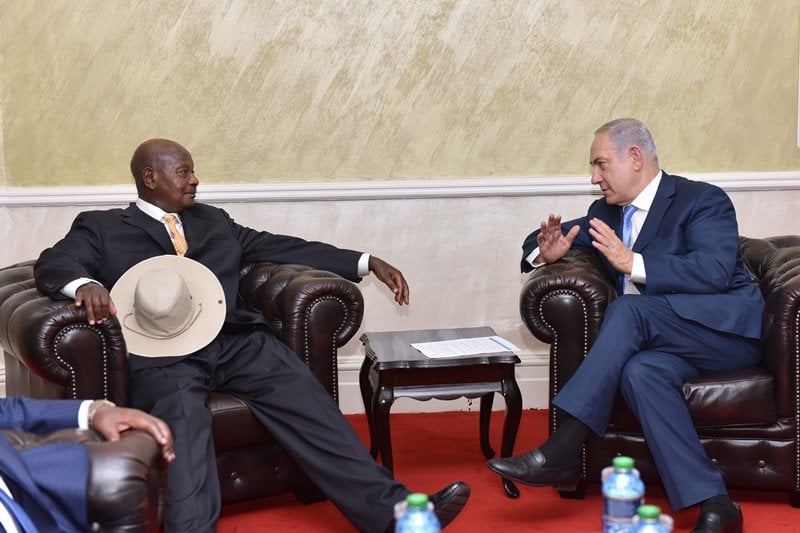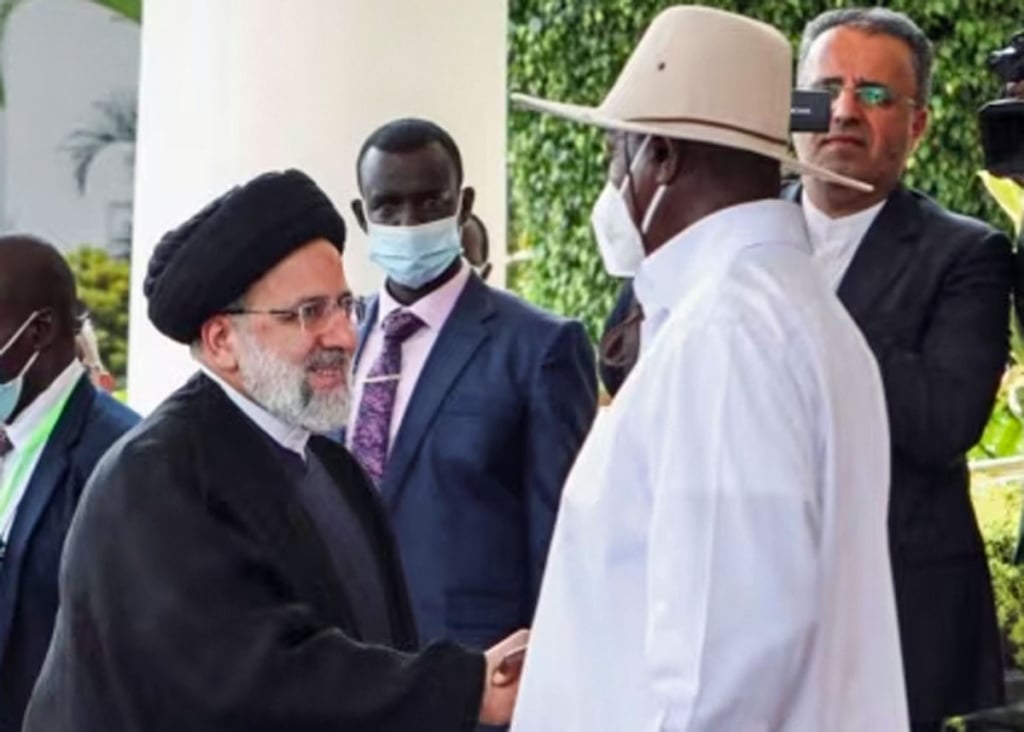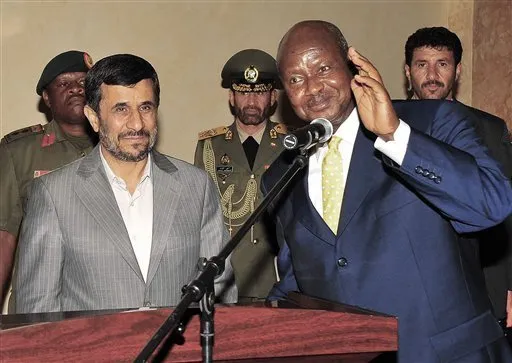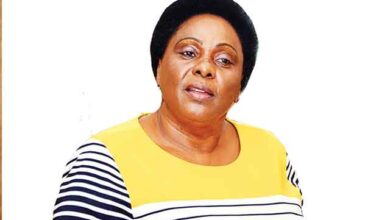
President Museveni has launched a pointed and historically grounded appeal for peace in the Middle East, calling out Israel for denying Palestinians their right to exist and urging Iran to accept the legitimacy of the Jewish state.
In a detailed statement issued on June 22, 2025, the veteran leader, who currently chairs the Non-Aligned Movement (NAM), identified four sets of “mistake-makers” whom he holds responsible for the region’s enduring conflict.
“You cannot say that [the Palestinians] do not belong there,” Museveni said, criticising Israel’s longstanding resistance to the two-state solution.
“If you say that, then what would you say about the Europeans who migrated to the Americas, Australia, South Africa, etc, in just the last 400 years?”
Drawing comparisons to Uganda’s own past, he said Israel’s denial of Palestinian claims echoed Idi Amin’s 1972 expulsion of Asians from Uganda — an act Museveni’s government has since reversed and condemned.
The president, whose statement was prompted by a complaint from the Iranian ambassador in Kampala over Uganda’s silence on the ongoing Middle East crisis, used the occasion to clarify Uganda’s long-held positions, offering a candid critique of all sides — and their histories.

The statement comes amid a fresh flare-up of hostilities across the Middle East, where Israel has been engaged in an intense military campaign against Hamas in Gaza, the Houthis in Yemen, and various targets in southern Lebanon.
The bombardment of Gaza, where thousands of Palestinian civilians have been killed, has been described by rights groups and global observers as a genocide.
Tensions reached a boiling point when Israel launched targeted missile strikes on Iranian territory. Iran responded with a barrage of missiles that hit US military bases in Qatar and Iraq.
The escalation followed US President Donald Trump’s order to bomb three Iranian nuclear facilities in what he described as a pre-emptive strike.
The conflict, which lasted 12 days, has shaken regional security and drawn fresh diplomatic calls for restraint.
Museveni recounted personal engagements with Iranian leaders, including former President Mahmoud Ahmadinejad, during which he urged Tehran to abandon its rhetoric that Israel is a “transplant” in the region.
“We told the Iranians that according to the Bible, Israel is part of that area,” Museveni said.

He cited the Roman expulsion of Jews after the fall of Masada, their subsequent suffering across Europe, and their return through the Zionist movement.
He ridiculed the early 20th-century British offer of Uganda as a Jewish homeland under the Balfour project.
“Imagine the absurdity,” he said. “The Jews wisely refused the ridiculous offer and insisted on Palestine where they had a historical, legitimate claim.”
“It was, therefore, correct that the United Nations decided to partition Palestine among the two peoples,” Museveni added. “It has been wrong for some of the Arabs and Iranian Islamists to refuse to recognize that historical solution.”
Museveni did not spare Israel either, criticizing it for its refusal to implement the two-state solution and its marginalization of Palestinians.
“Why have they refused the implementation of the two States solution?” he asked. “Whenever I would meet Mzee Benzion Netanyahu, Netanyahu’s father, I would ask him about the 7 tribes of Canaan… What happened to them? How about the Philistines of Gaza?”
The president warned that dismissing Palestinian claims was not only historically flawed but ethically untenable.
“Even if you assume that all those people perished,” he said, “there are people who migrated into the area when the Romans dispersed the Jews in AD 70.”

Turning his criticism westward, Museveni faulted the United States and Britain for meddling in Iranian politics, particularly the CIA-backed 1953 coup that ousted democratically elected Prime Minister Mohammad Mosaddegh.
“It is them that created that huge resentment that produced these clerics who have their own mistaken positions,” Museveni said, linking the rise of Iran’s Islamic fundamentalism to Western imperialist sabotage.
In a cutting aside, he noted that Iranian officials themselves were unfamiliar with their ancient history when he asked them about the Medians.
“Neither Ahmadinejad nor anybody around knew about the Medians,” Museveni said. “It was when they went to the university that they got some old man who knew something.”
Museveni issued a stern warning about the dangers of military intervention, especially from outside powers.
“To believe that the use of force, especially from outside the concerned country, is a solution — is a mistake,” he said. “All failed and, sometimes, the interventionists ended up disappearing. You want examples? Where is the Austro-Hungarian Empire?”
He compared contemporary interventions to failed historical crusades against ideological movements, from the Papacy’s attempts to preserve Catholic dominance in Europe to Austria-Hungary’s reaction to the French Revolution.
“Force should be for legitimate defence and not for aggression,” he said. “We appeal and advise the actors in the Middle East to draw back from the use of force and go back to the principled diplomacy.”
Uganda has consistently supported United Nations General Assembly resolutions in favor of Palestinian rights and a ceasefire in Gaza.
In key votes held between October 2023 and December 2024, Uganda voted in favor of resolutions calling for an immediate and permanent humanitarian ceasefire, the end of Israel’s occupation of Palestinian territories, and enhanced privileges for Palestine as a UN observer state.
For instance, on December 13, 2023, Uganda backed a widely supported resolution demanding a ceasefire in Gaza, and again in September 2024, it joined 124 countries in calling for Israel to end its occupation.
Uganda’s votes have aligned with the broader international consensus and reflect its longstanding position within the Non-Aligned Movement, emphasizing support for Palestinian self-determination and peaceful resolution of the conflict.
This stance stands in contrast to the dissenting vote by Ugandan judge Julia Sebutinde at the International Court of Justice, which the Ugandan government later clarified did not reflect its official position.
Ending on a spiritual note, Museveni called on the parties — and the world — to engage in collective prayer for guidance.
“Perhaps it’s time that we all agree to pray together and consult that Creator that cares for all of us without preference,” he said.
“Only He has the power, the right and the justice to decide what is the way forward for all of us.”
As head of NAM until 2027, Museveni’s intervention may carry influence among neutral states seeking a diplomatic alternative to the current cycle of escalation between Israel, Iran, and their respective allies.







